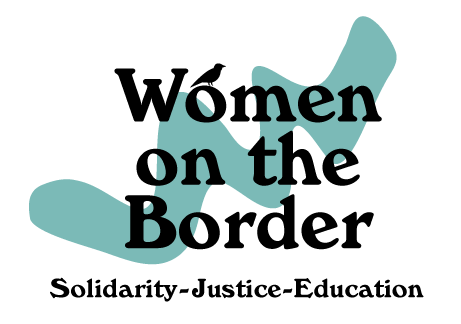Background for NIU Seminar, Women, Law and the Global Economy, produced by Professor Elvia R Arriola, Northern Illinois University College of Law
This is a multifaceted project that offers students an opportunity to learn about the impact of globalization by studies in the classroom as well as by traveling as delegates to the U.S.-Mexico border to meet with workers in factories owned by multinational corporations who have joined with other workers to seek better pay and working conditions.
A primary source of information about globalization is offered in a classroom setting through the seminar on Women, Law and the Global Economy. The focus of this seminar is to have students appreciate that the global economy today is highly gendered and to examine through independent research projects the myriad ways in which globalization affects women and their families.
In contemporary social and political discourse “globalization” is touted as an unquestioned benefit to the world. But in recent times, protests against the meetings held by the leaders of a few nations and the World Trade Organization (WTO) have raised questions about whether or not those economic decisions would positively affect the rights of workers to living wages or to adequate housing, nutrition, medical care and environmentally safe communities.
To interrogate the relationship between globalization and gender is to place the feminist inquiry into the trend of globalizing infuences in every aspect of ordinary people’s lives. For example, expanded tourism to new exotic places for privileged members of the first world countries, often translates into exploitation of women’s bodies for prostitution, sexual slavery trafficking and cheap sources for underground pornography industries. Similarly, new imports of products from electronic, clothing and toy manufacturers to be sold in U.S. domestic markets at slashed prices can be tracked to new production and assembly factories in third world countries who have hired mostly women to work long hours under sweatshop conditions for paltry wages. Their employers are typically part of a network of corporations engaged in the global “race to the bottom of the wage scale” in the effort to out-do a competitor for higher shareholder profits and larger pieces of the consumer pie.
Law students rarely have the opportunity to come face to face with the reality of the law’s impact on policymaking and on the decisions of large companies who are dictating the terms of life today for millions of people under the rules and regulations of the World Bank, the WTO and trade pacts like NAFTA or CAFTA.
One way of demystifying the terms of free versus fair trade or global economics is to meet some of those people who are working in the factories whose ownership can be traced to the fanciest office headquarters of multinational corporations listed in the Fortune 500. Scheduled delegations to the Mexican border which initiate in Austin, Texas take qualified applicants for a weekend experience in meeting and talking primarily women volunteers for the Mexican labor group known as Comité Fronterizo de Obrer@s (CFO).
This project seeks to take seriously the role of gender in globalization, and to give students the opportunity to ask the hard questions about the ways in which culture or norms of masculinity and femininity are being used or abused to undermine the basic right to human dignity by all regardless of their gender, age, class, race, color, religion or physical ability and irrespective of what part of the world they live in.
